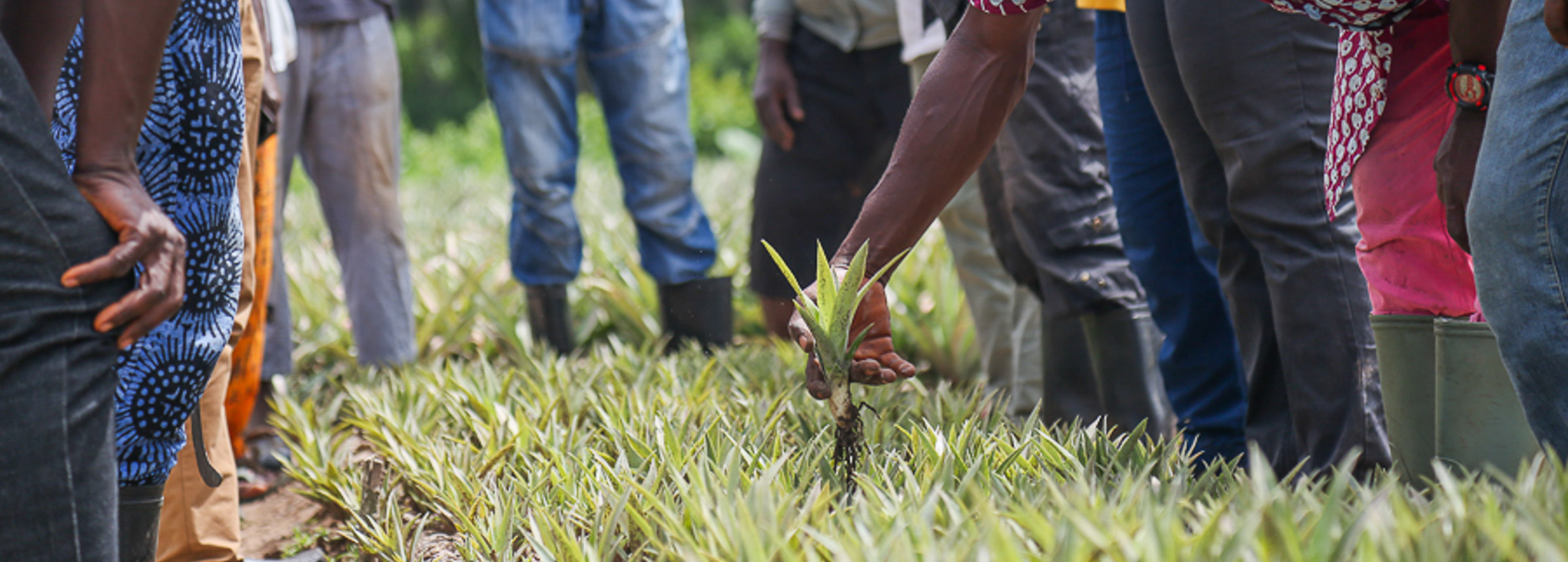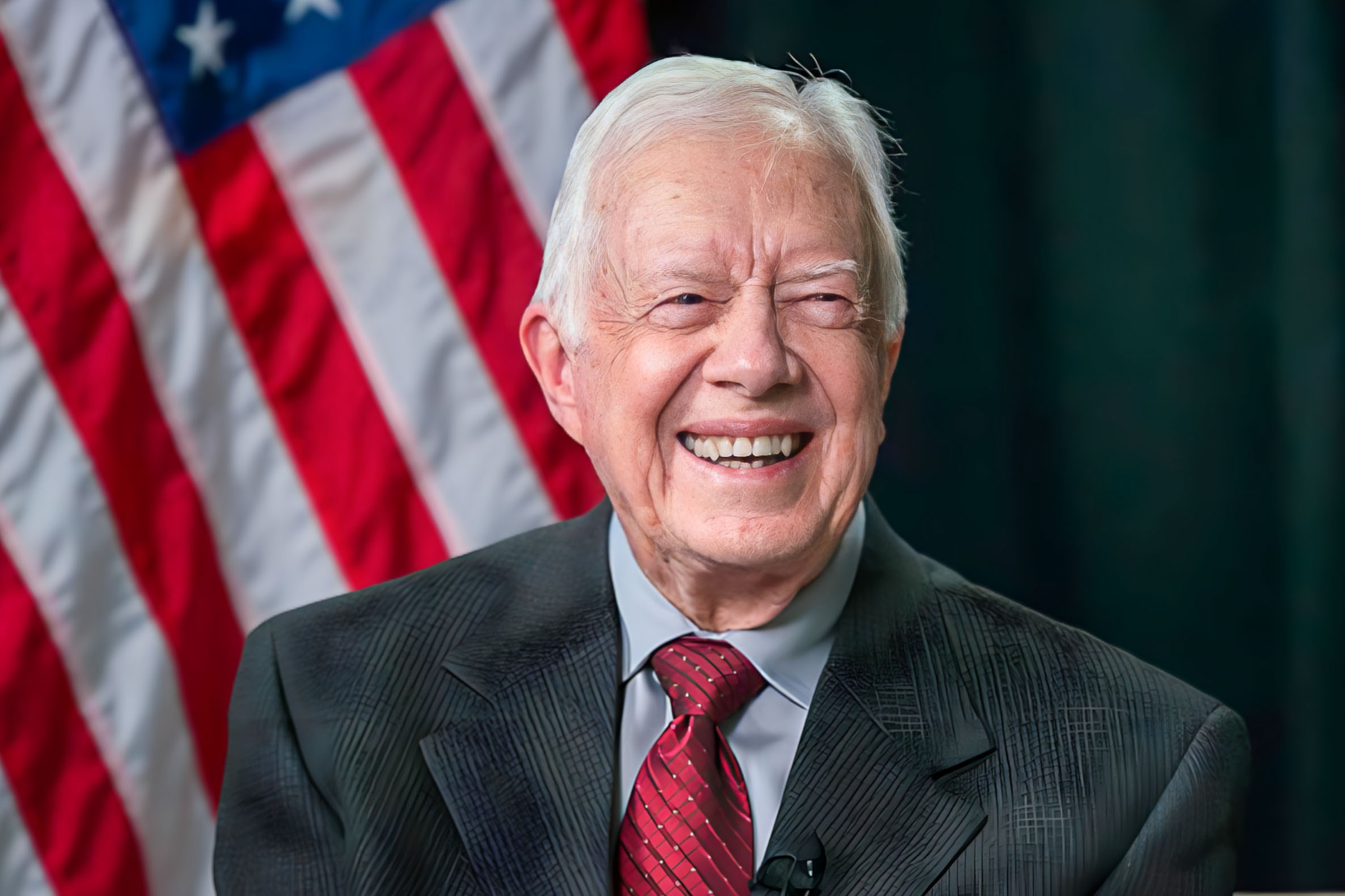
Celebrating the legacy of former U.S. President Jimmy Carter, friend of Winrock International
Winrock International maintained close and warm ties over many decades to former President Jimmy Carter.
In addition to serving as the 39th president, Carter spent years working as a peanut farmer and businessman in a small town in Georgia. A former state governor and Nobel Prize winner, Carter would become a cherished friend and colleague to some of Winrock’s earliest leaders, as well as to current and former Winrock board members.
A decade after his presidency, Carter worked with Winrock’s founding board member, Norman Borlaug ─ himself a Nobel Prize winner ─ and Japanese philanthropist Ryoichi Sasakawa, to found an organization called the Sasakawa Africa Association.
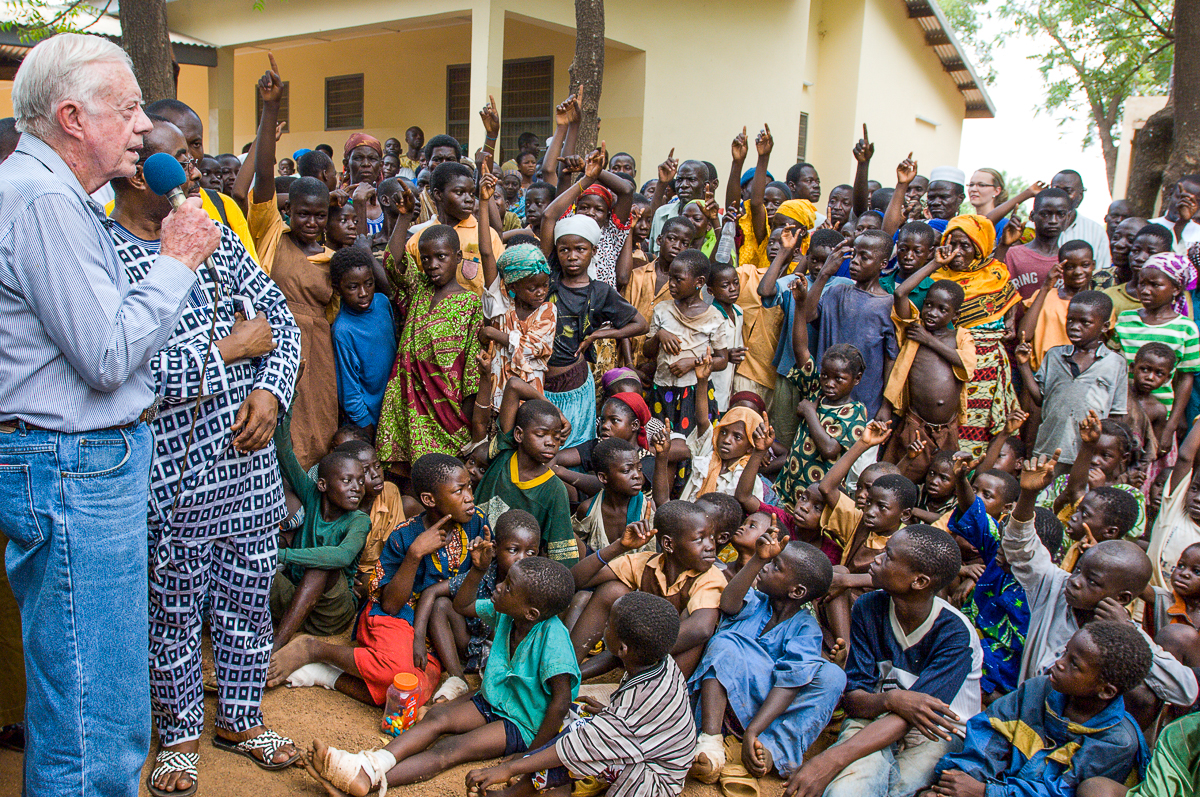
That work led directly to the creation of the Sasakawa Africa Fund for Extension Education, implemented by Winrock beginning in 1991 with a pilot in Ghana and running for nearly 30 years. The SAFE program spread across nine African countries, providing professional training in agriculture extension through university degree programs and helping to introduce new farming technology and practices to more than 4,000 African agriculture extension agents. Those countries spanned the African continent and included Benin, Burkina Faso, Ethiopia, Ghana, Malawi, Mali, Nigeria, Tanzania and Uganda.
Norman Borlaug won his Nobel Prize in 1970, just before Carter’s first year serving as Georgia’s governor. Borlaug won the prize “for a lifetime of work to feed a hungry world,” resulting from his development of a new variety of high-yielding wheat credited with saving a billion people from starvation. Borlaug and Winrock’s first president, Robert Havener, also collaborated to create the World Food Prize, which Winrock administered during its early years.
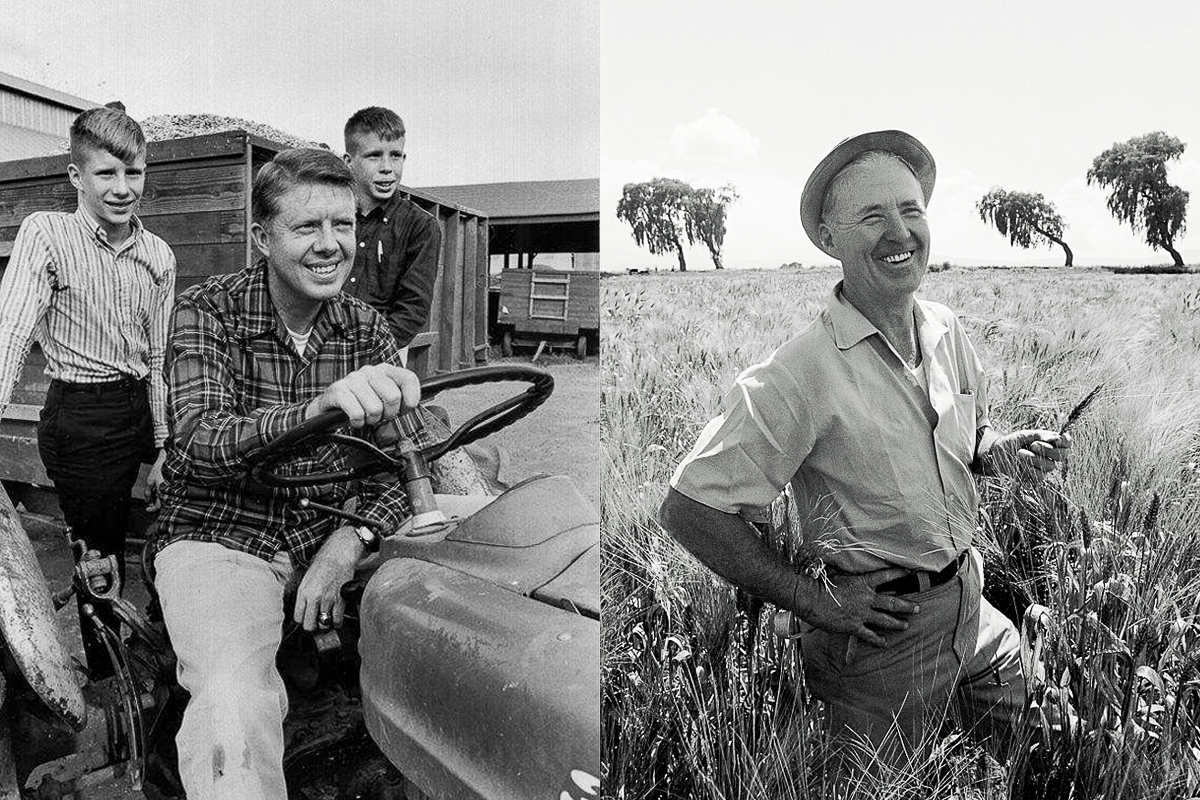
Carter, who as a young man took over his parents’ struggling peanut farm in Georgia, had long been interested in promoting U.S. agriculture expertise and knowledge abroad. He was also very interested in Africa, famously becoming the first U.S. president ever to conduct a state visit to a sub-Saharan nation when he traveled to Nigeria in 1978.
So it was perhaps no surprise when the former president teamed with Borlaug and Sasakawa, leading to Winrock’s implementation of the SAFE project. The initiative grew from recognition that while technologies existed that could help African smallholders improve productivity and profitability, many African extension agents lacked access to the kinds of learning opportunities, skills and training that would enable them to become effective trainers. African agricultural universities and institutions also needed to refocus to better meet the needs of students. To address those challenges, SAFE convened stakeholders including agricultural schools, farmer organizations, ministries and the private sector to identify a shared vision of a more responsive extension education.

Former Winrock board member and Kenyan Parliament Member Dr. Ruth Oniang’o has long been centrally involved with SAA; today, she continues to chair the association that Carter, Borlaug and Sasakawa founded together.
Samar Ali, a professor of political science and law at Vanderbilt University and current Winrock board member, also had the opportunity to meet ─ and to work and travel with the former president. She accompanied him as part of an international observation delegation to the 2012 Egyptian presidential elections. Carter established his internationally respected, Atlanta-based Carter Center in 1982. He continued to actively participate in global affairs until late in his life, working ceaselessly to protect, promote, and expand human rights. His efforts to conduct peace negotiations, monitor elections and work to eradicate diseases earned him the 2022 Nobel Peace Prize.
The former president was also a strong advocate of environmental protection, and an enthusiastic early adopter of renewable energy, two subjects in which Winrock has developed deep scientific and programmatic knowledge and expertise. Carter, in fact, had rooftop solar panels installed on his former home – the White House ─ amidst a global energy crisis.
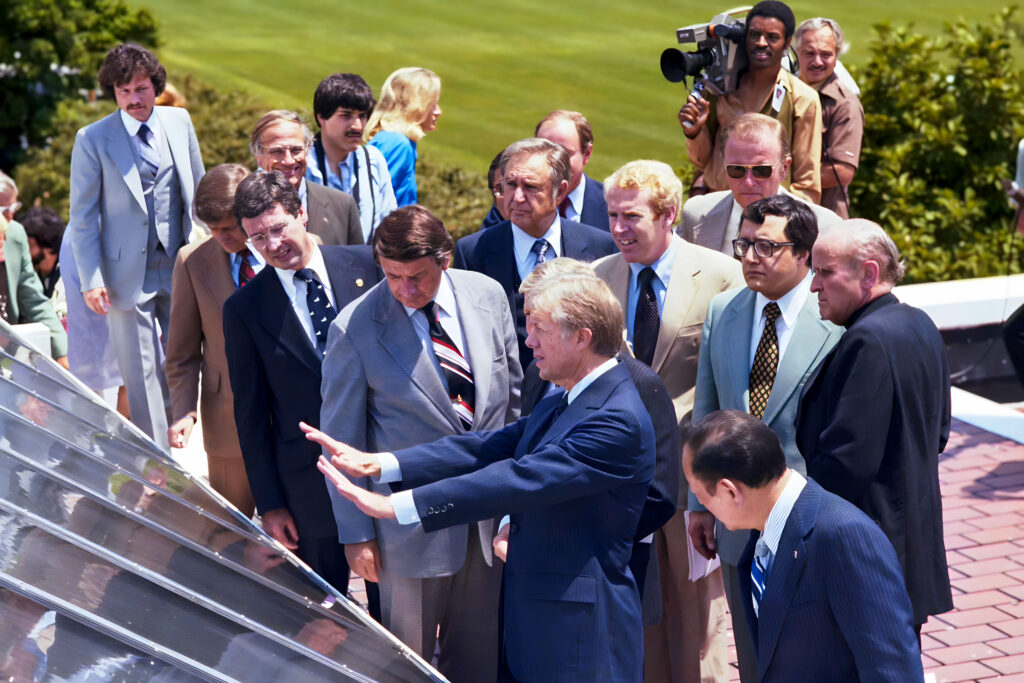
Yet despite his lofty status as a world leader and peace icon, Carter remained humble, inquisitive and approachable, as one Winrock volunteer, Joe Sullivan, found out while returning from a Farmer-to-Farmer assignment in Senegal, during a chance meeting aboard a plane.
Sullivan’s aircraft was aloft when the former president came walking toward him, stopping to shake hands with passengers on both sides of the aisle.
“He noticed my Winrock hat and asked if I worked for the organization,” Sullivan would later write in a Winrock blog about his assignment. “I said ‘Yes,’ and explained that I was just getting back from a volunteer assignment in Senegal. He apparently is familiar with Winrock and likes what the organization does,” Sullivan mused.
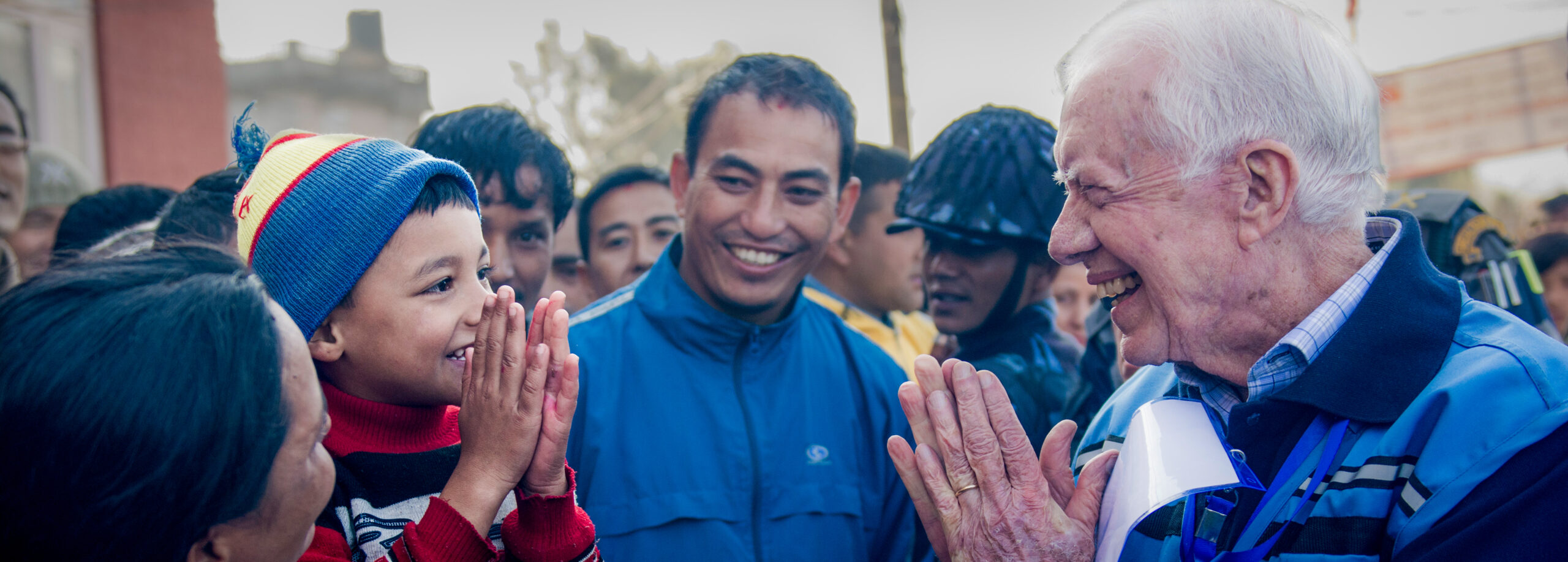
“We all like to gauge our success on these projects by how they seem to impact our hosts and the people around them, and we should, but once in a while we meet people who also want to change things, whose values are like ours for making a difference, and who do something as simple as catch sight of our Winrock hat, and what we do comes to their minds as well,” Sullivan wrote.
The life-sustaining changes President Carter tirelessly pursued and effected around the world will endure through the work he inspired – and through the work we continue to do at Winrock International.
Related Projects
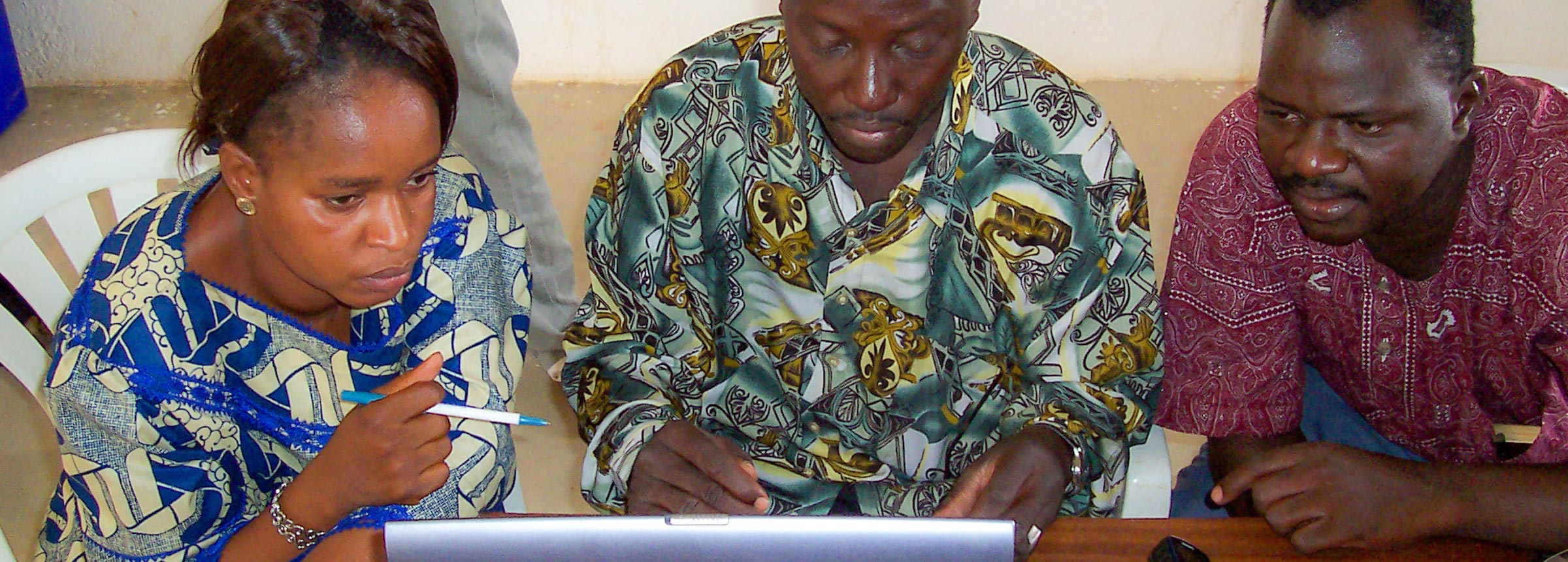
Sasakawa Africa Fund for Education (SAFE)
Small farmers in Sub-Saharan Africa are better able to achieve food security and earn a sufficient livelihood when they receive assistance from the continent’s agricultural colleges and universities. This program helps bolster the ranks of agricultural experts by introducing new opportunities for mid-career professionals to participate in extension education and degree programs at African universities.